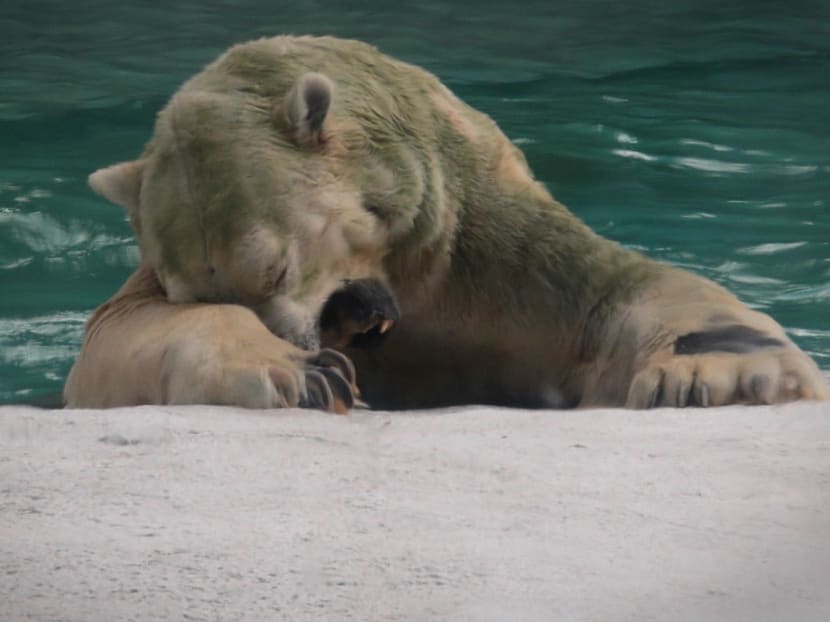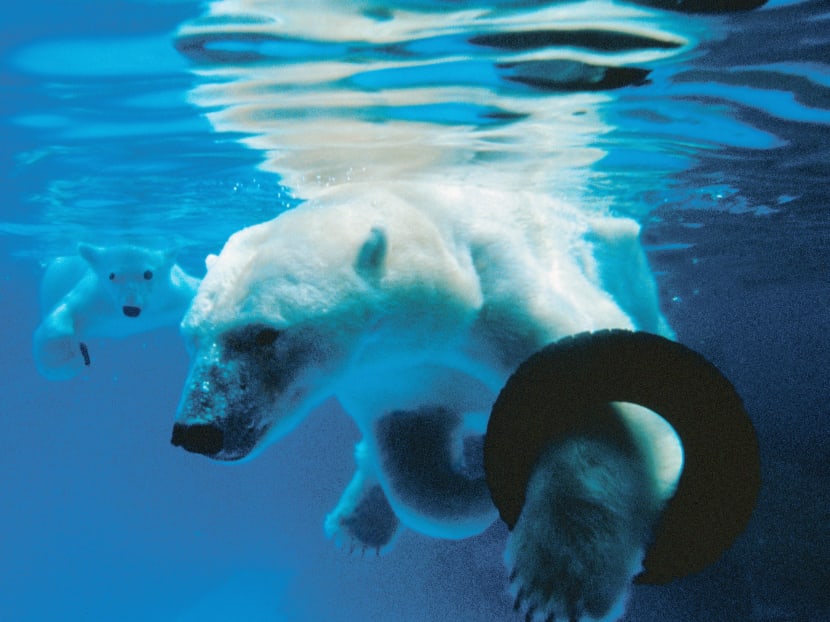Inuka's skeletal remains to be preserved for education purposes
SINGAPORE — The skeletal remains of Singapore's last polar bear, Inuka, will be preserved for educational purposes, the Wildlife Reserves Singapore (WRS) said on Monday (June 25) in response to media queries.

Inuka, the first polar bear to be born in the tropics, seen at the Singapore Zoo on Thursday (April 12). Its health is declining markedly, the Singapore Zoo said in a statement.
SINGAPORE — The skeletal remains of Singapore's last polar bear, Inuka, will be preserved for educational purposes, the Wildlife Reserves Singapore (WRS) said on Monday (June 25) in response to media queries.
WRS did not specify when the remains will be put up, or whether it will be available for public display.
.embed-container { position: relative; padding-bottom: 56.25%; height: 0; overflow: hidden; max-width: 100%; } .embed-container iframe, .embed-container object, .embed-container embed { position: absolute; top: 0; left: 0; width: 100%; height: 100%; }The remains of its mother, Sheba, is currently in a private display at the Singapore Zoo, also for educational purposes. Its remains were preserved by a taxidermist following its death in 2012.
Sharing the results of Inuka's autopsy on Monday, WRS said it confirmed earlier prognosis by veterinarians that the 27-year-old polar bear, who was put down on April 25 due to his ailing health, was suffering from irreversible age-related ailments including arthritis and ailing limbs, which resulted in a stiffer gait.
"This in turn caused ulcerations on his pads that led to deeper infection between his toes," a WRS spokesman said.
The gait was especially apparent on Inuka's hind limbs, the zoo revealed earlier, and the bear who was born in Singapore Zoo had specific painkillers and antibiotics added to his daily care regime, on top long-term glucosamine and anti-inflammatory treatment for his arthritis.
Inuka was also suffering from dental issues and occasional ear infections before it was put to sleep.
A health examination on April 25 showed that the bear's health failed to improve despite intensive treatments. His care team — comprising vets and keepers — jointly made the decision not to revive him from anaesthesia on "humane grounds".
At an earlier press conference announcing the passing of Inuka, WRS deputy chief executive officer and chief life sciences officer Cheng Wen-Haur said that the full autopsy on Inuka would "add to the knowledge of science".
A private memorial service was held for Inuka, the first polar bear born in the tropics, on April 26, which was attended by more than 400 staff of Singapore Zoo, well-wishers and fans.
At 27 years old, Inuka was well into its 70s in human years, and had surpassed the 25-year average lifespan of polar bears under human care. The average life expectancy of male polar bears in the wild is between 15 and 18 years.
Its father, Nanook, died at age 18, just three days after Inuka turned five, on Dec 29, 1995. And 17 years later, its mother, Sheba, died at age 35 on Nov 15, 2012.

Born on Dec 26, 1990, in the Singapore Zoo, the keepers used to refer to Inuka as the "best Christmas present". It's name, which means 'silent stalker' in Inuit language, was selected out of over 10,000 entries in a naming contest held in 1991.
It was the fourth polar bear to call the zoo home, and was also the last.
The zoo had previously announced that polar bears will no longer be part of its exhibits, following discussions with its Animal Welfare and Ethics Committee in 2006.






